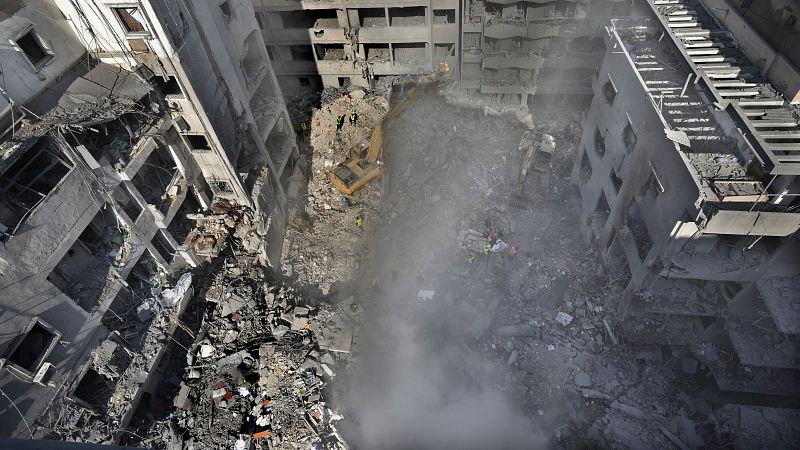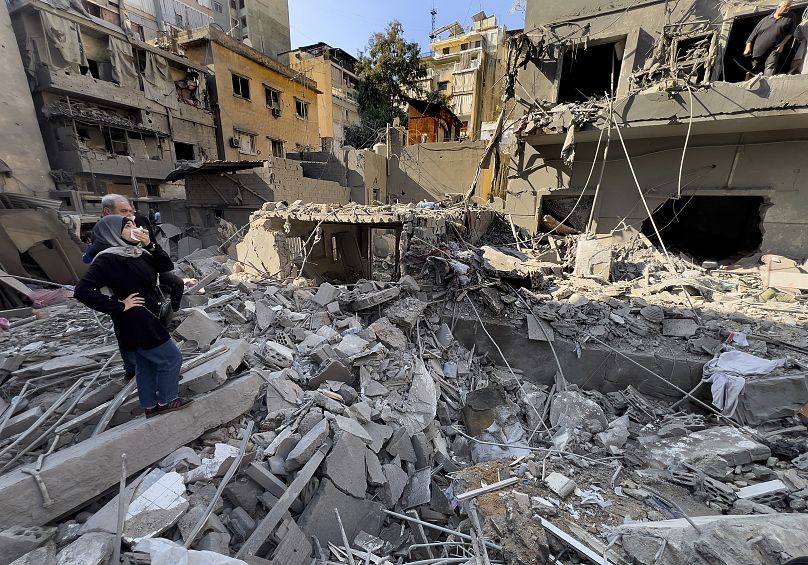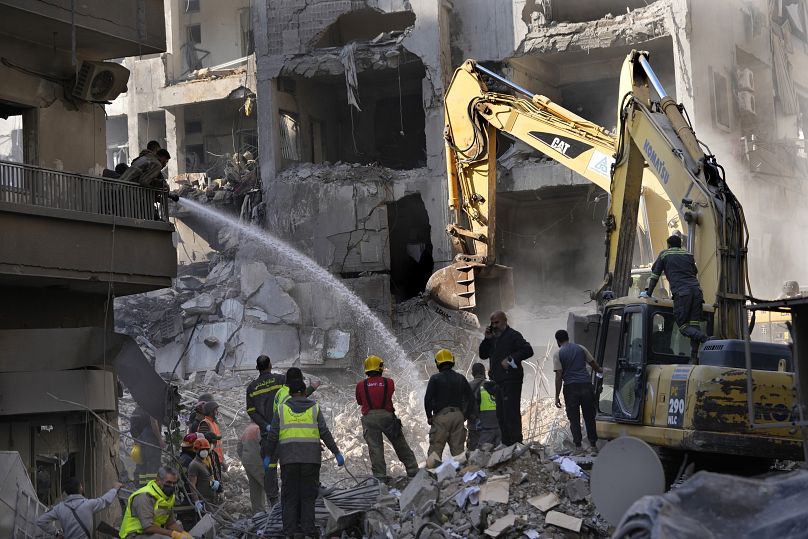At least 20 people killed in Israeli air strikes on central Beirut neighbourhood

At least 20 people have been killed in Israeli air strikes on the Lebanese capital Beirut as diplomats scramble to broker a ceasefire.
Lebanon's Health Ministry said 66 people were wounded in the strikes, the fourth such attacks on central Beirut in less than a week.
The strikes early on Saturday morning destroyed an eight-story building with a legislator for Hezbollah saying none of the group’s officials were inside at the time.
The attack also stripped the facades from nearby buildings and crumpled cars.
"The area is residential, with closely packed buildings and narrow streets, making the situation challenging," said Walid Al-Hashash from the Lebanese Civil Defence.
"We are working with two excavators and the work is ongoing, so I cannot estimate when it will be completed."
Israel's military did not comment on the casualties.
The latest escalation comes after US envoy Amos Hochstein travelled to the region in a bid to strike a deal to end months of fighting between Israel and Hezbollah that has erupted into full-blown war.
Two Western diplomatic officials described disputed points between Israel and Lebanon in ceasefire negotiations.
The current proposal calls for a two-month ceasefire during which Israeli forces would withdraw from Lebanon and Hezbollah would end its armed presence along the southern border south of the Litani River.
Thousands more Lebanese army troops would patrol the border area with UN peacekeepers and an international committee would monitor the deal's implementation.
The officials said Israel wanted more guarantees that Hezbollah's weapons are removed from the border area.
Israeli officials have said they would not agree to a deal that did not explicitly grant them freedom to strike in Lebanon if they believe Hezbollah is violating it.
Lebanese officials have said the inclusion of such a term would violate their country's sovereignty.
And Hezbollah leader Naim Kassem said this week that the militant group would not agree to a deal that does not entail a "complete and comprehensive end to the aggression."
Lebanon and Israel also dispute which countries would sit on the monitoring committee. The officials said Israel refused to allow France, which has been close with Lebanon since its colonial rule there ended. Lebanon refused to have Britain, a close ally of Israel.
The militant group Hezbollah is ideologically aligned with Gaza-based Hamas and began firing into Israel the day after the war in the Strip started in October last year.
Hezbollah and Israel have traded almost daily fire, displacing tens of thousands on both sides of the border.
On 1 October 1, the Israeli military launched a ground operation into Lebanon with as many as 15,000 IDF troops believed to be in the country.
Israeli attacks have killed more than 3,500 people in the country, according to Lebanon's Health Ministry.
And fighting has displaced about 1.2 million people, or a quarter of the country's population.
On the Israeli side, about 90 soldiers and nearly 50 civilians have been killed in bombardments in northern Israel and the fighting.
Today



